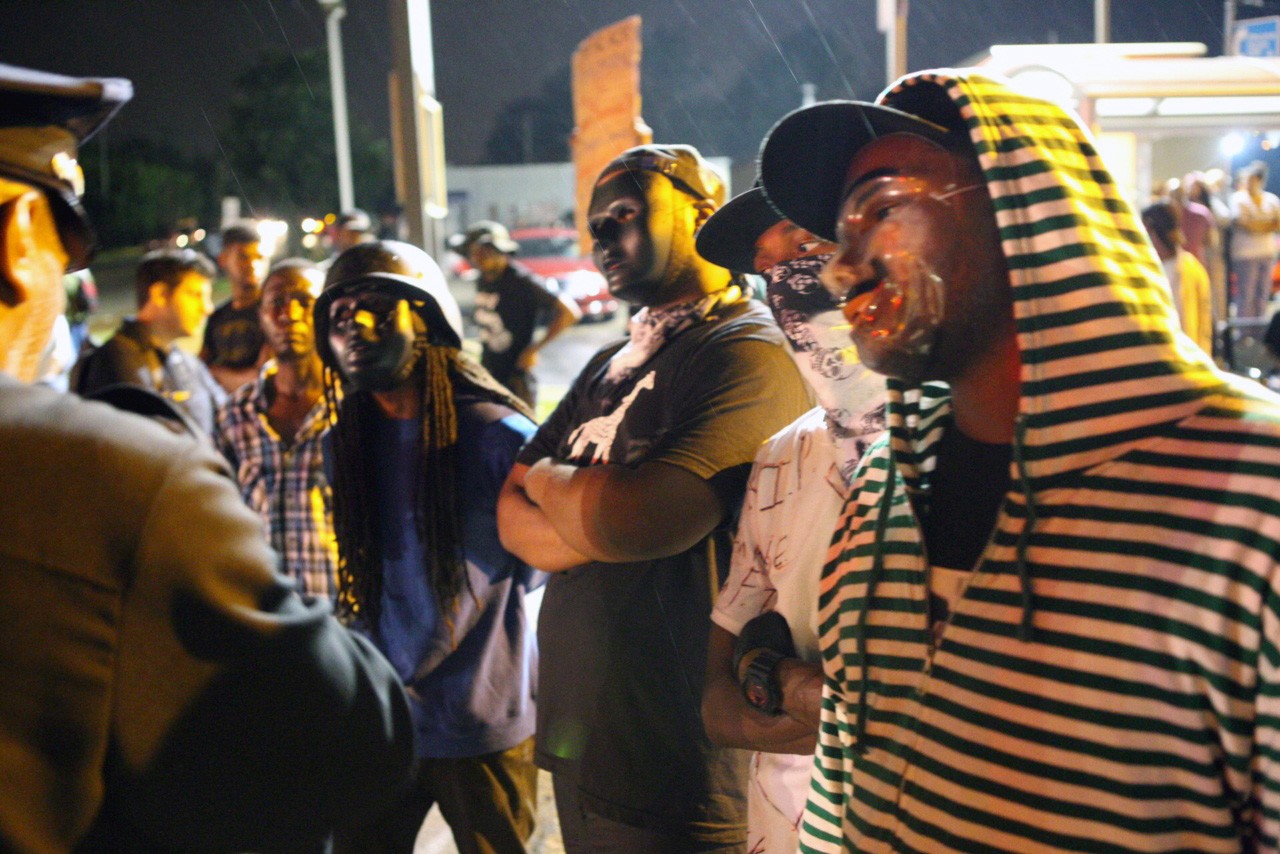Filed under: Critique

Traditional systems of authority are dead or dying. It matters increasingly less whether one identifies with their job, loves their country, kneels before God, or worries about tarnishing the family name. In the past, anarchists have fought to the death against these institutions, believing that if people rose up and destroyed them, humanity would be free. While these relics are decaying, it is due to many different forces, rebellion not being primary. As a result, daily life is still bound to alienation, livelihood tied to the whims of the precarious market, and obedience maintained by the threat of the justice system or the normality of habit, or both. Humanity is still submissive, but our rulers are faceless abstractions: invisible flows of capital, imagination-killing technologies, the justice system, etc. These systems have their agents in our midst: police, prison guards, CEOs, judges; but they no longer solicit respect, they just do their jobs to keep the system running, and they are interchangeable in our minds. So we are followers without leaders, waiting to be led.
On February 22, 2017 an article was posted to the website Medium titled “Is Black Bloc a Racist Tactic in the Trump Era: Why White Activists Should Stop Wearing Masks at Protests.” Immediately below the title reads “By Nico Quintana, transgender, QPOC, Latinx activist.” The content of the essay is uninteresting, but there is something about the contemporary world that reveals itself when reading this.
The author does not want white people to wear masks during demonstrations. They do a poor job of arguing their position, but that isn’t what’s important. Similarly to how, in order to show expertise and authority, medical professionals list their degrees and certifications next to their names, and professors name their areas of study and degrees, this author writes next to their name “transgender, QPOC, Latinx activist,” and they do so immediately before calling out white people for being racist. Whether it was a conscious decision or not, the author by listing these after their name commands an air of authority among the socially conscious readers of their essay, especially for white people who often want, more than the destruction of white supremacy, to avoid being labelled as racist.
Followers without a leader have discovered identity politics, and what we’re seeing in the contemporary period is that they now have something to lead them. The figure, a tokenized “member of (insert oppression category) community,” is seen as a legitimate source of guidance, leadership, and ultimately authority when there are so few left.
Like Communism in the mid-20th century, this ideology has constructed itself in a way that it is not allowed to be questioned or one would be tarnished as a counter-revolutionary or “Rightist,” or in our case, charged as a racist. In the framework of ally politics, the ally is supposed to follow the leadership of the oppressed “community” and its leaders regardless of whether they agree with them or not. As anarchists and others have been saying for probably a decade now, this doesn’t even make sense; two people sharing a category of oppression does not mean they agree with each other. How racist can you be to suggest that two black people will have the same opinion on everything? Nonetheless, when someone disclaims their identity the way this author does, it’s perceived as a pronouncement to obey. Like all authority, it doesn’t matter if what they say makes sense, you are supposed to follow them either way.
What else would sate a followers’ lust for direction and guidance than authority figures that you are not allowed to disagree with? And when was the last time liberals and leftists had a system of authority that appeared to somewhat engage their morality? Finally, leaders someone with a conscience can feel good about.
People who go through certain experiences probably have knowledge about something that people who lack such experience do not. This society is violent towards people it has classified as belonging to specific groups (race, gender, sexuality, etc), and at their expense it privileges other people. How these factors plays out during moments of resistance is a complicated question, but surely listening to people who have experienced something that is relevant to the current struggle makes sense. This essay is not contesting these things, or arguing that oppressed people are now in positions of authority. What’s being commented on is the culture of the contemporary moment where a penchant towards respecting authority is not being satisfied by traditional routes, and has found the realm of identity politics to unleash itself. That sometimes people tap into this dynamic and use it for their own gain is to be expected.
Perhaps this partially explains why identity politics is so repulsive towards conservatives, they still believe in following God, nation, the family, and all the rest. The drives towards obedience circulating through them have never been cut off.





